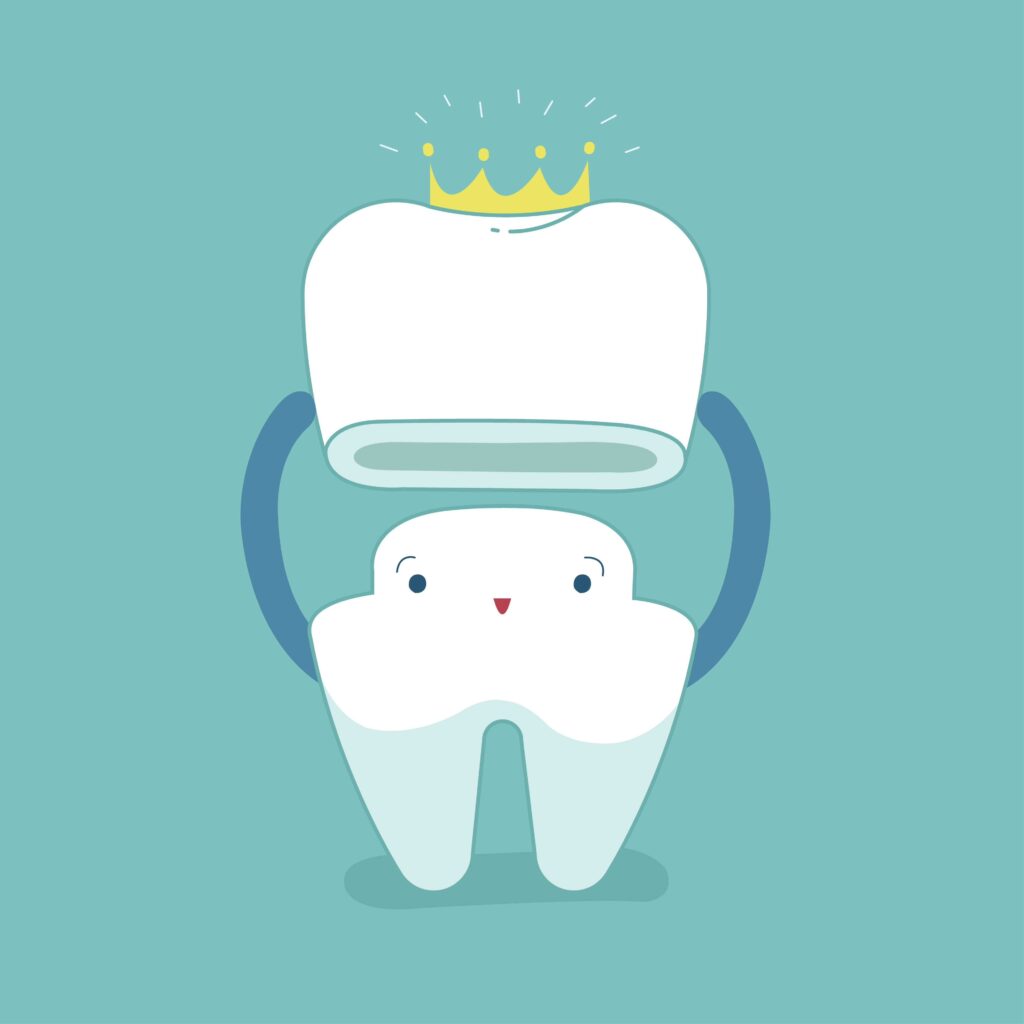
Tooth enamel is the strongest substance in the entire body. However, it is still vulnerable to damage. Fortunately, if you have a tooth that is structurally compromised, this doesn’t mean that you need to get ready to say goodbye to it. Dental crowns are available to build up and protect damaged teeth from additional harm. This way, the tooth can survive many years into the future. Here is what you can expect as you recover from getting your dental crown.
Mouth Numbness
Before your dentist begins your procedure, they will numb the area with a local anesthetic. This means that you won’t be able to feel any discomfort when the treatment is taking place. The numbness will last throughout the duration of your treatment. However, it will also linger for a couple of hours afterward. During this time, it’s important that you don’t accidentally bite or burn the area. If you do, you will be in for a rude awakening when the anesthetic wears off. It is best to wait till the numbness wears off completely before you eat or drink hot beverages.
Soreness
It is common for some patients to experience soreness at or around the affected area for a few days following their procedure. The good news is that this should go away on its own as the tooth adjusts to its new restoration. Many patients find relief with over-the-counter analgesic medications and/or pain relievers. If discomfort continues for more than a few weeks or you are experiencing severe pain, give your dentist a call so they can give you further advice.
Temporary Restorations
In the process of getting a dental crown, you need to get a temporary dental crown to keep your tooth safe between appointments. This crown requires special care to prevent fractures and dislodgement because it is much more fragile than a permanent crown. Here are some rules to implement during this time.
- Avoid sticky/chewy foods
- Don’t eat tough/hard foods
- Chew on the opposite side of your mouth as the temporary crown
- Be careful when flossing around the crown
Oral Hygiene
Once your permanent dental crown has been placed, you can eat food like you normally would. Keep up an excellent oral hygiene routine. This includes brushing twice, flossing, and rinsing with mouthwash every day. You should also continue to see your dentist every six months for routine cleanings and checkups.
Getting a dental crown is nothing to worry about. Thanks to dental crowns, you can keep your damaged tooth in good shape for many years down the road!
About the Practice
At Little Rock Family Dental Care, we have a team of dentists serving patients in the Little Rock community. With their combined experience and expertise, patients can get pretty much anything they need at one of our four convenient locations. To learn more about dental crowns or to schedule an appointment, visit their website or call (501) 514-6146.
